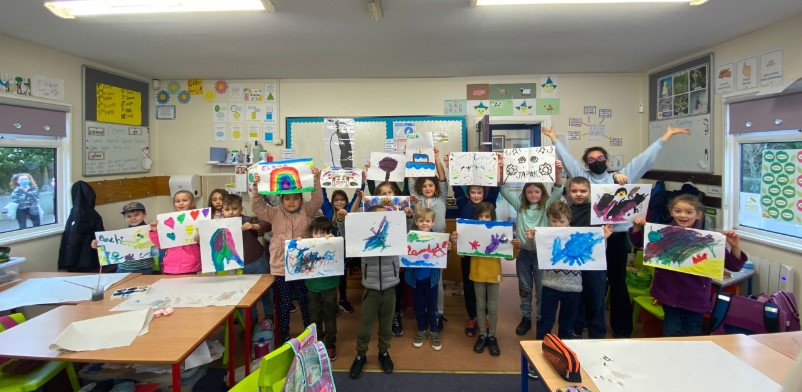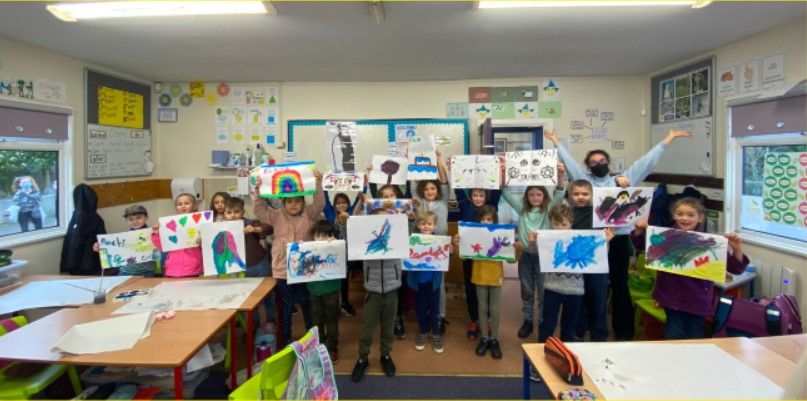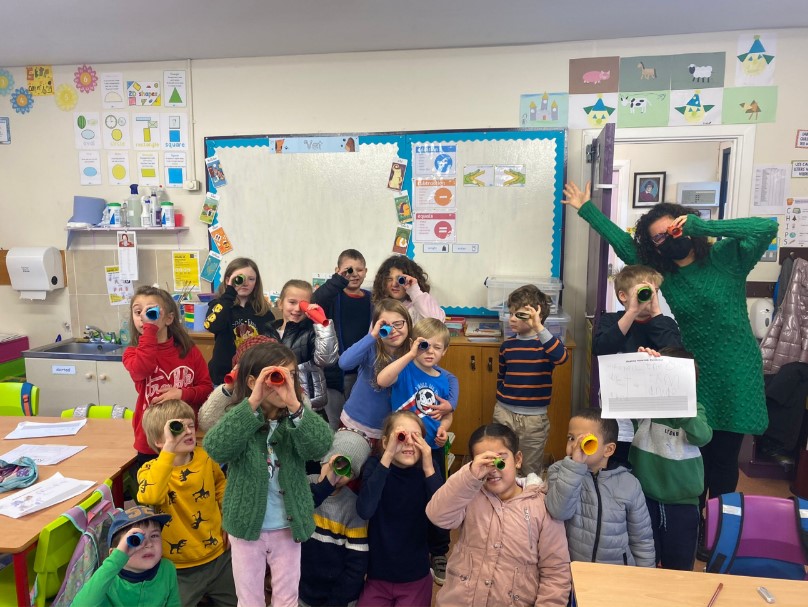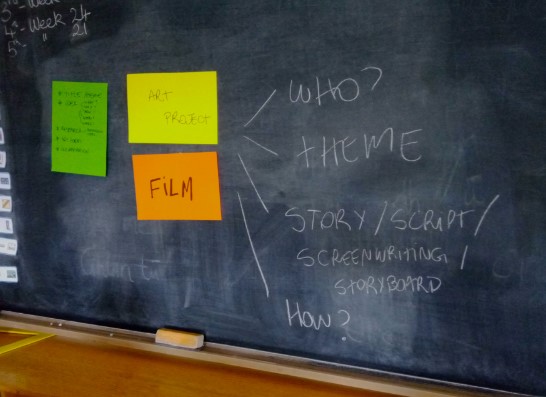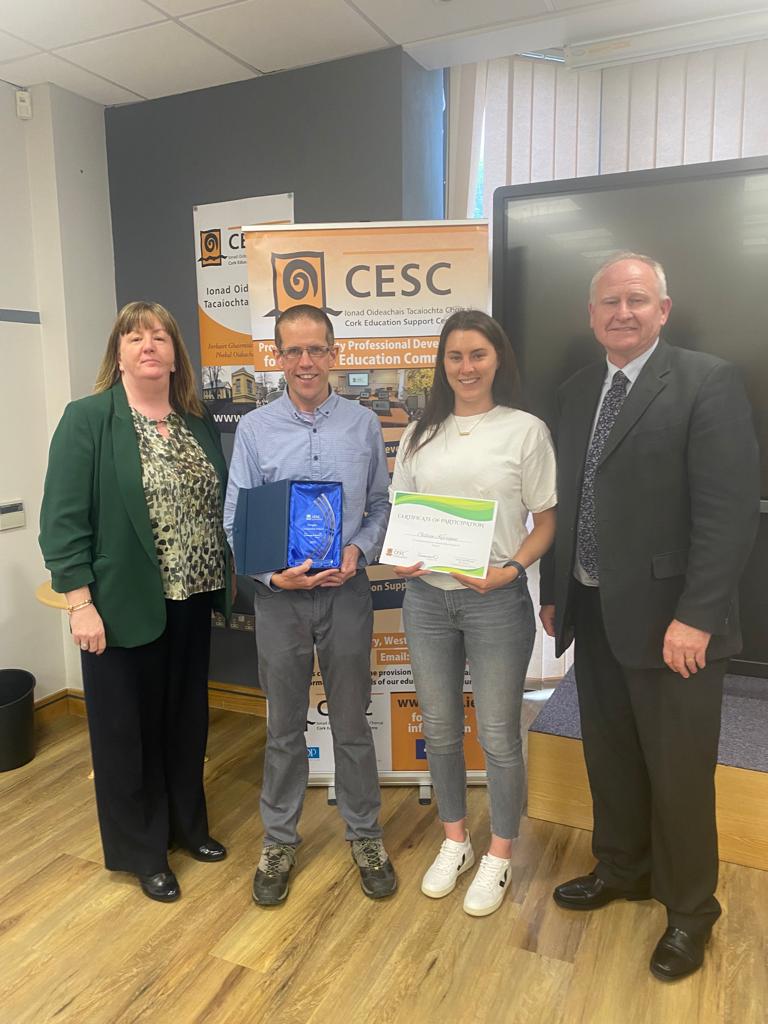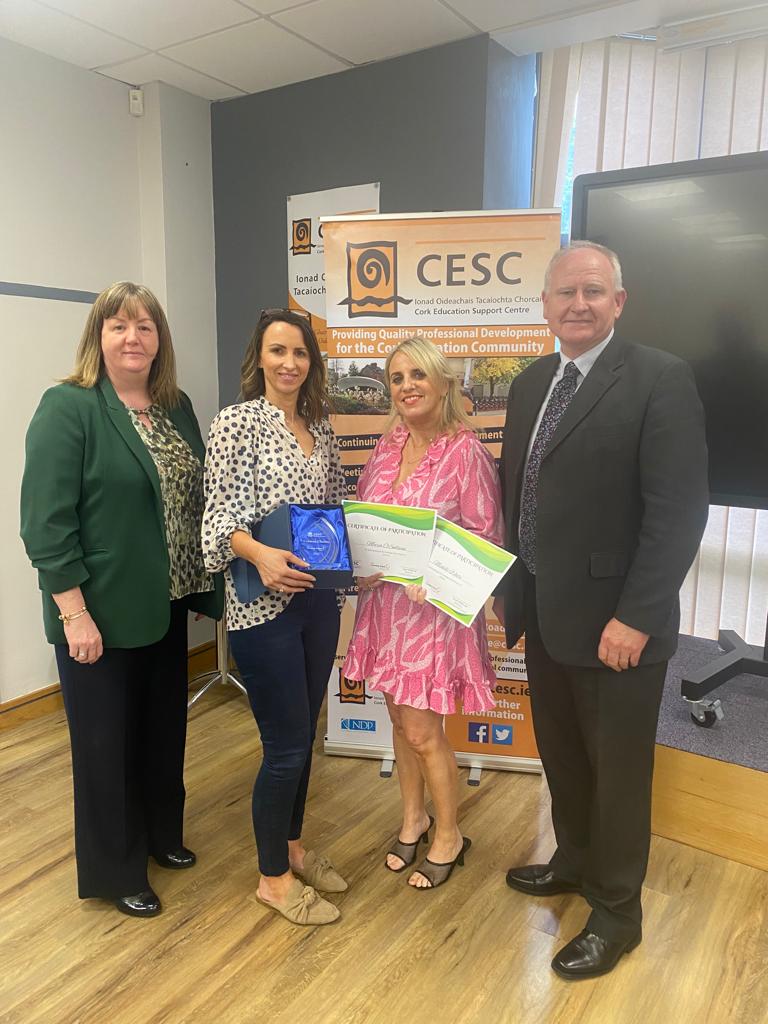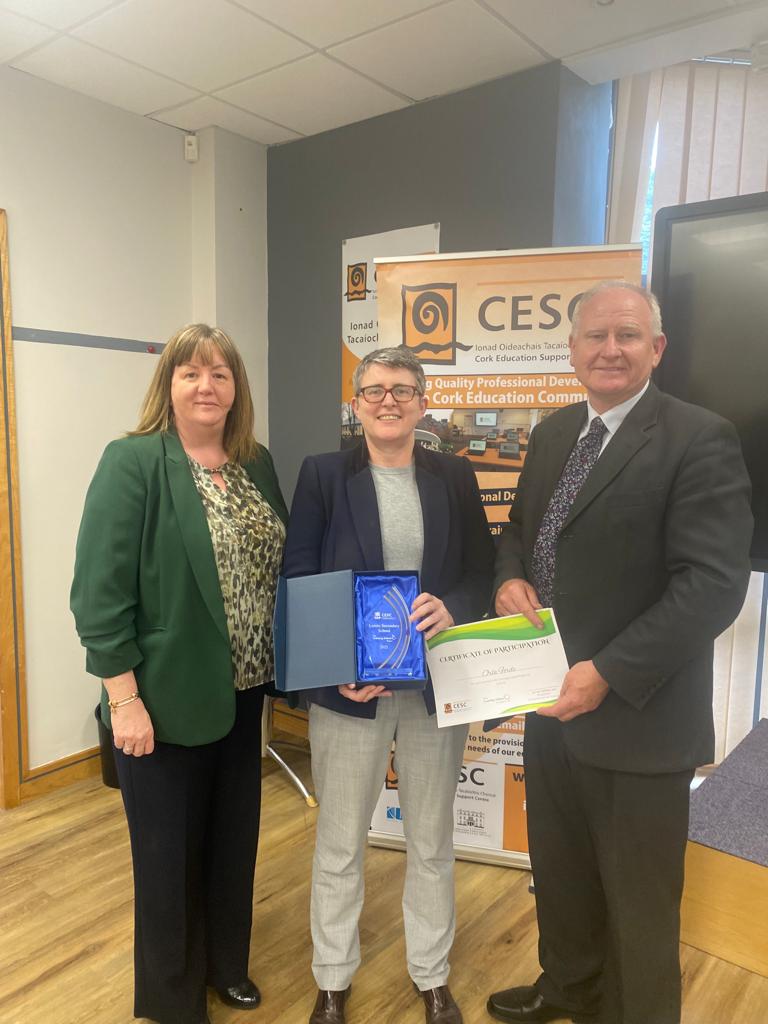BLAST 2021 - Fermoy Adair NS
Artist Diviane Helena de Oliveira led the BLAST residency in Fermoy Adair NS where the focus was on filmmaking.
The whole school got involved in the BLAST residency.
The children learned about the film making process, how to be a good film maker and the work involved.
The children in the senior classes were able to use what they learned to film a short piece after preparatory work was completed in school and they look forward to presenting it to their parents.
The children in the junior classes had the opportunity to explore visual arts and film making process in a playful way by creating comic strips and planning their own movie.
All of the students involved had the opportunity to express themselves through the art making process, creatively interact with the artist and share their own diverse cultures and languages.
